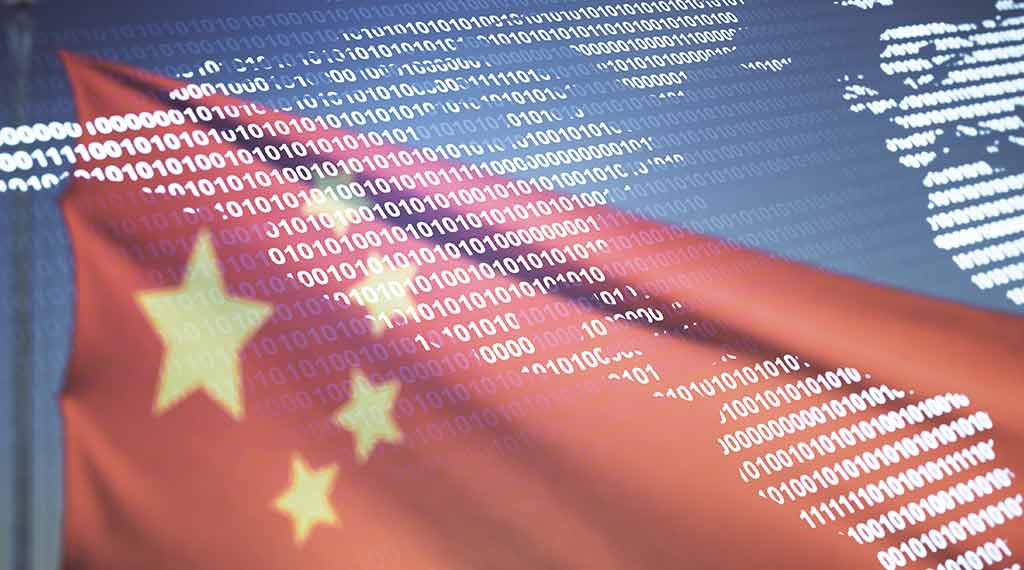
The United States depends upon its Intelligence Community (IC) to define the capabilities and intentions of its enemies. The U.S. spends more than any other state to provide its decision-makers with intelligence and has created an IC with unrivaled abilities, skills and talents.
When major intelligence failures occur — such as the attack on Pearl Harbor, the demise of the Soviet Union and the end of the Cold War, missed signals before 9/11 and regarding Iraqi weapons of mass destruction before the 2003 U.S. invasion — they always have mighty consequences for U.S. national security interests and compel an explanation of how such failures could occur, and the lessons officials might learn to prevent similar occurrences.
As significant as the above-mentioned failures were, they pale in comparison to the United States’s greatest intelligence failure: enabling the rise of China. Although in recent years they’ve testified to Congress and emphasized the “China threat” in government reports, for a generation, the intelligence community appears to have failed national security decision-makers regarding the growth of China’s capabilities and intentions. They missed mentioning it, year after year — did anyone ask why and how this could happen?
This apparently occurred in plain sight. China has grown from having about 1.6% of the world’s gross domestic product in 1990 to about 19% today. Every year, China’s economy grew without any caution from the IC regarding the potential consequences of this growth.
The first is China’s ability to fund the expansion of its military. Indeed, China’s military has grown in every respect. China’s nuclear capabilities have grown from a modest force to one that will exceed the U.S.’s by 2030, if not sooner. China already possesses more tactical nuclear weapons and theater forces than does the U.S. Its conventional capabilities challenge, and perhaps dominate, the U.S. military’s in the Indo-Pacific, at sea, in the air, in the cyber domain, and in space. It utilizes this power to try to coerce Taiwan and Vietnam, as well as U.S. allies, including Japan and the Philippines.
Beijing’s diplomacy influences nations on every continent and from the Arctic to Antarctic. Its economic influence is ubiquitous. It’s prevalent in the U.S., as well — Silicon Valley keeps close ties to Chinese entities, Wall Street continues to permit Chinese firms to raise capital on U.S. markets, and U.S. firms, such as Apple and General Motors, continue to invest in China. China’s capabilities now appear to match its Olympian ambitions.
Congress and the American people deserve an explanation of why, for so long, the U.S. intelligence community permitted the rise of a peer competitor without alerting decision-makers about the risk and framing options for a response. If certain IC agencies were providing warnings and options to address the threat, and if policymakers ignored the warnings, that is also important to understand: Why might senior IC leaders in Washington choose not to act upon such indications?
Compelling officials to explain any intelligence failures should be a priority for the House Select Committee on the Strategic Competition Between the United States and the Chinese Communist Party, and the Senate and House intelligence communities. Despite the usefulness of such committees, to organize congressional response, it is preferable to create a new commission — perhaps one modeled after the 9/11 Commission — to address the causes of intelligence failures and evaluate solutions.
Congress established the bipartisan 9/11 Commission to understand why that intelligence failure occurred and how the U.S. could prevent another horrific attack, in part by recommending reforms for the IC. Congress now should examine the failure of the IC and officials of several administrations to identify the Chinese Communist Party (CCP) as a threat to the United States. Among the questions lawmakers might ask: What assumptions were made about the CCP’s strategic objectives and motivations? Did the IC try to correct internally any intelligence failures that occurred? Did biases exist that may have colored the IC’s reporting on China? Who might have understood the threat but was ignored or punished for offering accurate assessments?
Only a major bipartisan commission could accomplish this, because it would have sufficient purview and weight to investigate and comprehend failures, and to aid the intelligence community as it now provides accurate intelligence regarding the China threat.
Equally, a lack of publicly available information from the IC may be only part of this failure. If the intelligence community was conveying accurate intelligence to policymakers all along, why did they not act on this intelligence?
China’s rise and its hostility toward the United States and its democratic principles have been clear to anyone who wished to pay attention. But perhaps some officials failed to understand the CCP’s malign intentions and, as a result, made gross errors based upon benign assumptions about China’s strategic goals and objectives. The world is now dealing with the consequences of China’s rise — from the death of Americans from Chinese sourced fentanyl to the off-shoring of American manufacturing jobs, to coercion against Taiwan and the South China Sea, to exploitation of people and the environment through mercenary business practices, to rampant intellectual property theft, to sustained deception about the origin of COVID-19. Any IC errors in this regard had huge adverse consequences for U.S. national security.
In the aftermath of the attack on Pearl Harbor and 9/11, Americans cried out for justice. Today, the American people deserve to understand the full implications of the China threat, and to learn how the China-U.S. imbalance of power happened, why any intelligence failures or failures to act upon good intelligence happened, and what U.S. policymakers should do going forward.
- Victory over the PRC: Why engagement makes war with Beijing more likely - April 24, 2024
- The US must end engagement (and Biden’s neo-Engagement) with the PRC now - April 10, 2024
- How to address the CCP threat: Engagement, defeatism, or victory - April 3, 2024
